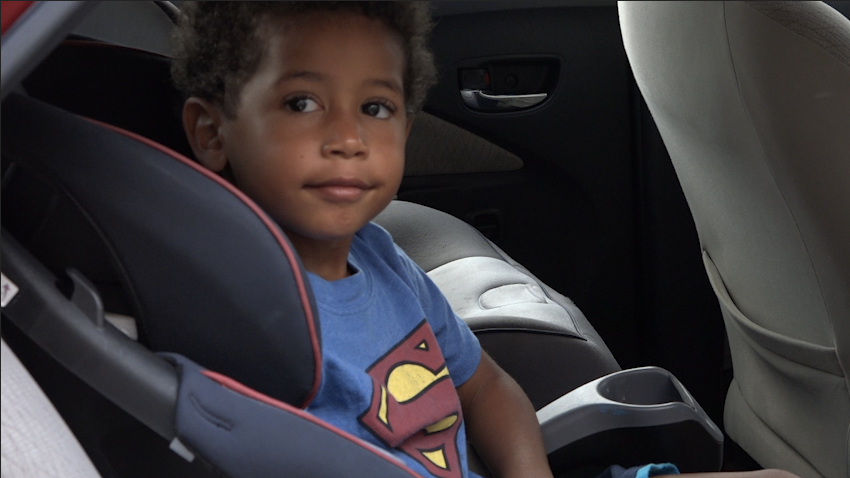ALLENTOWN, Pa. (WLVT) - With summer in full swing, it’s important to remember to keep children and pets cool, especially when they’re inside a hot car.
Last year, 52 children died because they were left in hot cars, according to the National Highway and Traffic Safety Administration.
AJ Suero, regional manager for the American Red Cross in Allentown, says even a few minutes inside a hot car can be deadly to a child.
"We would never recommend leaving a child in a vehicle under any circumstance, especially not during times of excessive heat," Suero told PBS39. "What many of us perceive as hot, can be 15 to 20 degrees hotter inside a vehicle. Potentially, on a day when it’s 91 or 92 degrees outside, the inside of your vehicle could be well in excess of 100 degrees. That can cause a blackout or heatstroke within an adult and certainly a child."
The Red Cross recommends bringing plenty of water along when you travel and keeping a toy in the front seat to remind you that you have backseat passengers.
Under Pennsylvania’s Good Samaritan law, if you spot a child locked in a car and are concerned that they may be in imminent danger, you should first dial 911 and inform police. If emergency responders don’t arrive fast enough, you are permitted to break into the car and rescue the child. This rule, however, does not apply to pets.
Janette Fennell runs KidsAndCars.org. She says it's important to act fast when you see a child locked in a hot car.
"First call 911. If the child is in severe distress, do anything you can to extract that child. That may mean breaking a window," Fennell told PBS39. "Ask any people around to help and go into nearby stores to find the owner of the vehicle. In these types of incidents, every second counts."
She offered some tips to keep in mind if you’re traveling with children.
"The biggest mistake you can make is to think this can’t happen to you or to someone in your family. Understand that the human brain is failable," said Fennell. "The number one tip I give: Look before you lock. Always turn around and make sure you look inside your car."




